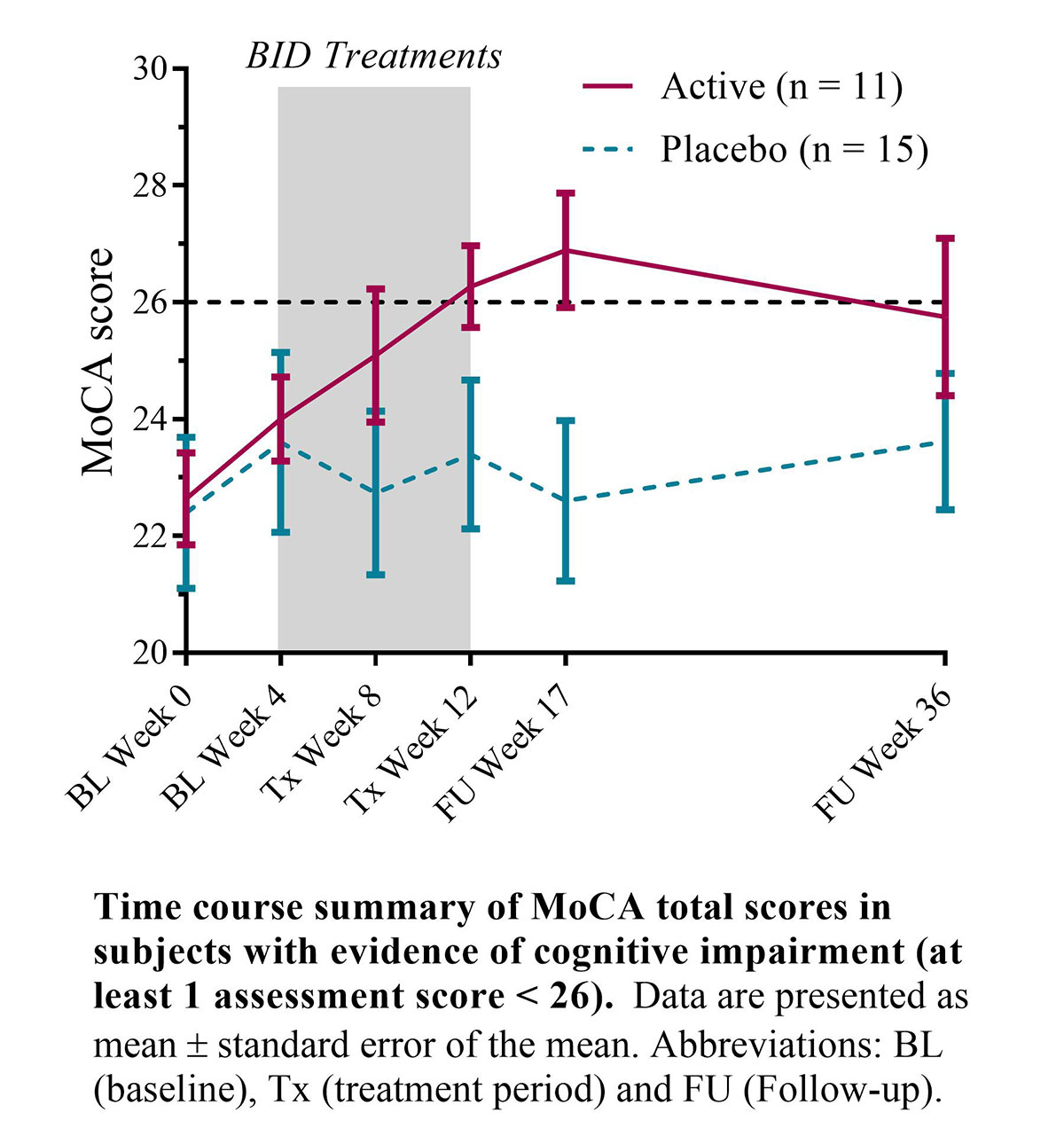Session Information
Date: Wednesday, September 25, 2019
Session Title: Cognition and Cognitive Disorders
Session Time: 1:15pm-2:45pm
Location: Agora 3 East, Level 3
Objective: To evaluate the potential efficacy of a software-controlled, solid-state, time-varying caloric vestibular stimulation (tvCVS) device for the treatment of cognitive impairment in Parkinson’s disease (PD).
Background: CVS works by transferring heat to and from the petrous bone which modulates the firing rate of the vestibular nerves, and in turn elicits compensatory responses across cortical and sub-cortical structures. Results from a recent randomized double-blind, placebo-controlled study demonstrated that 8 weeks of daily tvCVS treatments using a tvCVS device was associated with robust reductions in both non-motor and motor symptom burden in PD. These effects persisted for several weeks past treatment cessation and were obtained with excellent treatment blinding and high treatment adherence/participant satisfaction. Here we further explore the therapeutic efficacy of the device for cognitive impairment.
Method: Eligible and consenting participants taking stable anti-Parkinsonian medications were randomly allocated 1:1 to a placebo or active arm. After a 4-week baseline period, they self-administered ~19 minutes of active or placebo treatment twice daily in the home for 8 weeks. Outcome measures were administered every 4 weeks from the start of baseline to the end of the treatment period and also 5 weeks and 24 weeks after treatment cessation. Only subjects with signs of cognitive dysfunction, as evidenced by scores ≤ 25 on the Montreal Cognitive Assessment (MoCA), were included in this post-hoc exploratory analysis.
Results: Active-arm subjects (n = 11) exhibited significantly greater improvements in MoCA total scores relative to placebo-arm subjects (n = 15) both at treatment end and five weeks after treatment cessation [figure 1]. Therapeutic gains were driven largely by improvements in delayed recall memory. Gains in the performance-based MoCA were also accompanied by improvements in patient-reported measures of cognition.
Conclusion: Daily use of the tvCVS device may provide a feasible and effective adjunct therapy for the management of cognitive impairment associated with PD. Hypothesized mechanisms of action center on improved neurovascular coupling and down-stream sequela and are currently being explored. Evidence for improved memory with tvCVS device treatments suggests potential efficacy across additional neurological disorders. This potential will be explored in future research.
To cite this abstract in AMA style:
K. Ade, A. Podlewska, S. Banducci, T. Pellat-Higgins, M. Bodani, M. Sakel, L. Smith, D. Attix, P. Lewitt, D. Wilkinson. The Effects of Time-Varying Caloric Vestibular Stimulation Therapy on Cognition Impairment in Parkinson’s Disease [abstract]. Mov Disord. 2019; 34 (suppl 2). https://www.mdsabstracts.org/abstract/the-effects-of-time-varying-caloric-vestibular-stimulation-therapy-on-cognition-impairment-in-parkinsons-disease/. Accessed December 26, 2025.« Back to 2019 International Congress
MDS Abstracts - https://www.mdsabstracts.org/abstract/the-effects-of-time-varying-caloric-vestibular-stimulation-therapy-on-cognition-impairment-in-parkinsons-disease/

